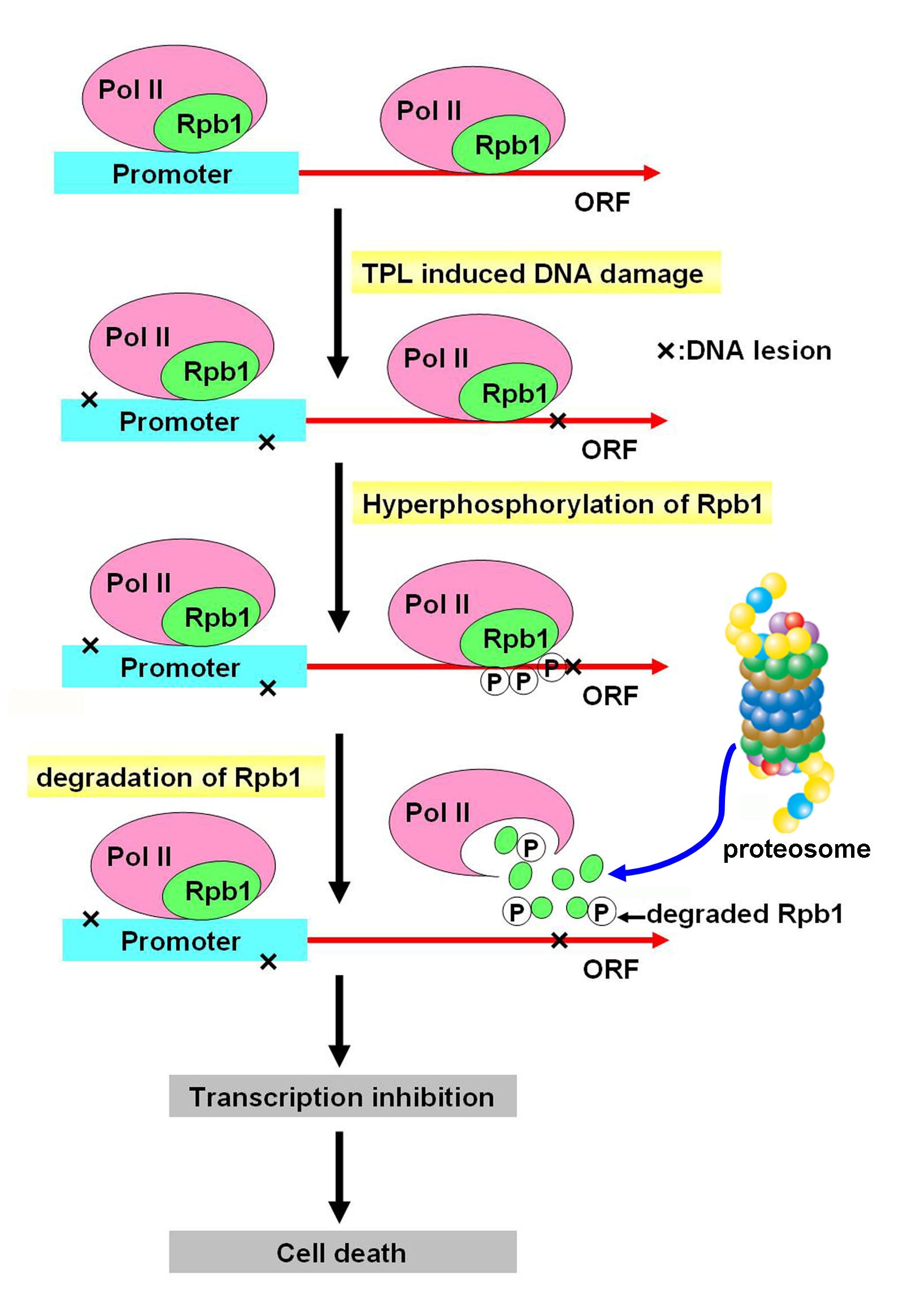 |
| Model of the mechanism of how TPL inhibits transcription(Image by SIMM) |
Triptolide (TPL), a key biologically active component of the Chinese medicinal herb Tripterygium wilfordii Hook. f. has potent anti-inflammation and anti-cancer activities. The direct targets and precise mechanisms that are responsible for the gene expression inhibition, however, remain unknown.
Research group lead by Prof. YU Qiang in Shanghai Institute of Materia Medica (SIMM) reports that TPL inhibits global gene transcription by inducing proteasome-dependent degradation of the largest subunit of RNA polymerase II (Rpb1) in cancer cells. In the presence of proteosome inhibitor MG132, TPL treatment caused hyperphosphorylation of Rpb1 by activation of upstream protein kinases such as P-TEFb in a time and dose dependent manner. Also, short time incubation of TPL with cancer cells induces DNA damage.
In conclusion, these results reveal a new mechanism of how TPL works in killing cancer. TPL inhibits global transcription in cancer cells by induction of phosphorylation and subsequent proteasome-dependent degradation of Rpb1 resulting in global gene transcription, which may explain the high potency of TPL in killing cancer. This work has been published online on PLOS ONE (2011, 10.1371/journal.pone.0023993).
The study was supported by the Grants from China National Natural Science Foundation, Shanghai Science and Technology Research, China Ministry of Science and Technology Research and National Science & Technology Major Project "Key New Drug Creation and Manufacturing Program"
Full text: http://www.plosone.org/article/info:doi/10.1371/journal.pone.0023993

